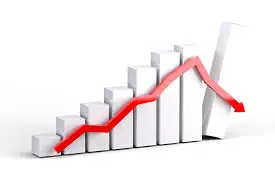Advertisements
In the financial world, one of the most common dilemmas faced by investors is choosing between fixed-income and equity investments. This decision can be crucial in determining the success and stability of an investment portfolio over the long term. As we navigate an ever-changing economic environment, understanding the key differences between these two investment options becomes essential to maximizing your returns and minimizing risks.
Fixed-income investments, such as bonds and term deposits, offer a stability that many investors find attractive, especially in uncertain times. With predictable income and lower volatility, these investments are often seen as a safe haven. However, is the stability enough to meet your long-term financial goals?
Advertisements
On the other hand, equity investments, which include stocks and mutual funds, present the opportunity to earn significant returns through market growth. Although these investments can be more volatile and risky, the potential for high returns often appeals to those with a higher risk tolerance and a longer investment horizon.
This in-depth analysis will guide you in determining which option best aligns with your personal financial goals, considering factors such as your risk profile, time horizon, and investment objectives. Let's dive into the pros and cons of each option to help you make an informed decision that will propel your finances toward success.
Advertisements

Understanding Fixed Income Investments
Fixed-income investments are financial instruments that promise the investor regular payments, usually in the form of interest, and the return of the principal at maturity. These products, which include government and corporate bonds, are considered a safer option compared to equity investments.
The key to understanding fixed income lies in its ability to offer cash flow stability. When an entity issues a bond, it promises to pay periodic interest to the bond buyer. This allows investors to anticipate a return on their investment over time, which is especially valuable in times of economic uncertainty.
Advantages of Fixed Income
Investing in fixed income has several advantages that make it attractive for certain investor profiles:
- Security: Investments in bonds, especially government bonds, are considered safe as they usually have less risk of default compared to stocks.
- Predictable Income: Interest payments are fixed and regular, providing a stable source of income.
- Diversification: Adding fixed income to an investment portfolio can help reduce overall risk, as they tend to behave differently than stocks.
However, it is important to note that fixed-income investments are not completely risk-free. Factors such as inflation and interest rates can negatively affect the real value of interest payments and the value of the bond in the secondary market.
Exploring Equity Investments
Equity investments, on the other hand, offer potentially higher returns, but carry a higher level of risk. These include shares of publicly traded companies, mutual funds, and ETFs. By purchasing a share, the investor becomes a part owner of the company, meaning they can benefit from the company's growth and profits.
The stock market is known for its volatility. Stock prices can rise or fall rapidly due to factors such as market changes, economic news, and company performance. This volatility can scare some investors, but it also offers opportunities for significantly higher returns.
Benefits of Variable Income
Despite the risks, there are several reasons why investors opt for equities:
- Growth Potential: Stocks have significant appreciation potential, which can result in substantial gains over the long term.
- Dividends: Many companies pay dividends to their shareholders, providing an additional income stream.
- Inflation: Stocks often outperform inflation over time, helping to preserve purchasing power.
It is crucial for equity investors to have a clear investment strategy and be willing to tolerate short-term volatility in pursuit of potential long-term gains.
How to Choose the Best Option for You?
The choice between fixed income and equity depends on several factors, including your financial goals, risk tolerance, and time horizon. Below, we'll explore how these elements can influence your investment decision:
Financial Objectives
Your financial goals play a crucial role in determining your investment strategy. If you are looking to preserve capital and earn regular income, fixed income might be more suitable for you. On the other hand, if your goal is to grow your wealth significantly over time, equity may be the better option.
Risk Tolerance
Risk tolerance is another important factor. If you are comfortable with the idea that your investments can fluctuate considerably, and you understand that volatility is part of the process to achieve higher returns, equities might be right for you. However, if you prefer a more conservative approach with fewer surprises, fixed income might be more appropriate.
Time horizon
Time horizon is essential in investment planning. If you have a long-term horizon, such as retirement in 20 or 30 years, you may be able to withstand the volatility of equities. Conversely, if you need the money in a shorter time frame, fixed-income investments, with their stability, may be safer.
Final Considerations on Diversification
Regardless of which route you choose, diversification is a key principle in investing. By diversifying your portfolio, you can mitigate risks by not relying on just one type of investment.
A diversified portfolio can include a mix of fixed income and equity, allowing you to benefit from the stability of fixed income and the growth potential of equity. Consider working with a financial advisor to develop an investment strategy that aligns with your personal goals and financial situation.
Conclusion
In conclusion, deciding between fixed-income and equity investments is a crucial choice that depends on several personal and market factors. If you are looking for stability and security, fixed-income investments may be ideal, offering predictable returns and lower risk. However, the profitability is often lower, which may not satisfy those looking to maximize their long-term gains.
On the other hand, equities offer the opportunity for higher returns, but also carry a higher level of risk. This option is more suitable for investors willing to accept market volatility and looking for long-term growth.
Ultimately, the key is to assess your financial goals, investment horizon, and risk tolerance. It is crucial to diversify your investments to balance risks and maximize return potential. Additionally, staying informed about market trends and adjusting your portfolio accordingly is vital to financial success.
In short, there is no universally best option. The best strategy is the one that aligns with your personal financial needs and goals. So, do your research, consult experts if necessary, and make informed decisions to ensure a solid financial future!









